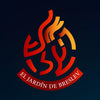
Bamidvar Parasha
“The Creator He spoke to Moses in the Sinai Desert, in the Tent of Meeting, on the first day of the second month, in the second year after their departure from the land of Egypt, saying…” (Bamidbar 1:1).
The Midrash1 It clarifies why the Torah emphasizes that the Creator spoke to Moses in the Sinai Desert, if we already knew: “Everyone who does not make himself hefker, 'ownerless' like the desert, it cannot acquire wisdom or Torah; that is why it was said '...in the desert of Sinai.'
The commentators of the Midrash explain what the Torah refers to with hefker: “Be humble to learn from all and teach all, for the Torah is not found among the vain.”2
This Midrash It's puzzling: why isn't the Torah found among the vain? Isn't it possible for a person to be vain and yet know a lot of Torah? Haven't we met people who do know a lot of Torah, yet are conceited and proud?
However, the explanation of the Etz Yosef It is clear: A vain person may have much knowledge of what is written in the books, but he does not have Torah. What is the difference between a person who does have Torah and another who only knows a lot of Torah, but does not have Torah?
The difference lies, as the Etz Yosef He points this out in his willingness to learn it from everyone and teach it to everyone. A proud person will assume that others have nothing to teach him, and so he won't learn from them (unless, of course, it's someone who is publicly known as a great scholar). Likewise, he will be unwilling to teach it to those who are, in his opinion, below his level. On the contrary, a person who is not vain and is willing to learn from everyone and teach everyone is one who truly has the Torah.
On the other hand, it is worth emphasizing that the word that the Midrash uses is that the Torah is hefker, which literally means ownerless. Anyone who believes they own the Torah is denying this ownerless characteristic of the Torah: anyone or group who assumes that the Torah is theirs, that only they—or they—possess the Torah and that everyone else lacks it, is vain and unwilling to learn from them.
The moral is clear: one must be willing to learn Torah from any person or any group, no matter how different it may be from the group to which one belongs.3 Herein lies the humility necessary to truly acquire Torah.
Grades:
1 BAmidbar Rabbah 1:7.
2 This is how he explains it Etz Yosef.
3 Of course, not everyone knows the same thing: there are those who barely know anything about Torah and there are those who are Gedolei Israel, but the latter appreciate the Torah from whomever it comes, as long as it is consistent with the rest of the Torah and is not just an isolated phrase that contradicts other ideas or parts of the Torah.
(from Haish L.)
Dedicated to all the sick in Am Israel and throughout the world, for the protection of all soldiers and people of Israel, and for peace in Israel.
The Breslev Garden recommends:
